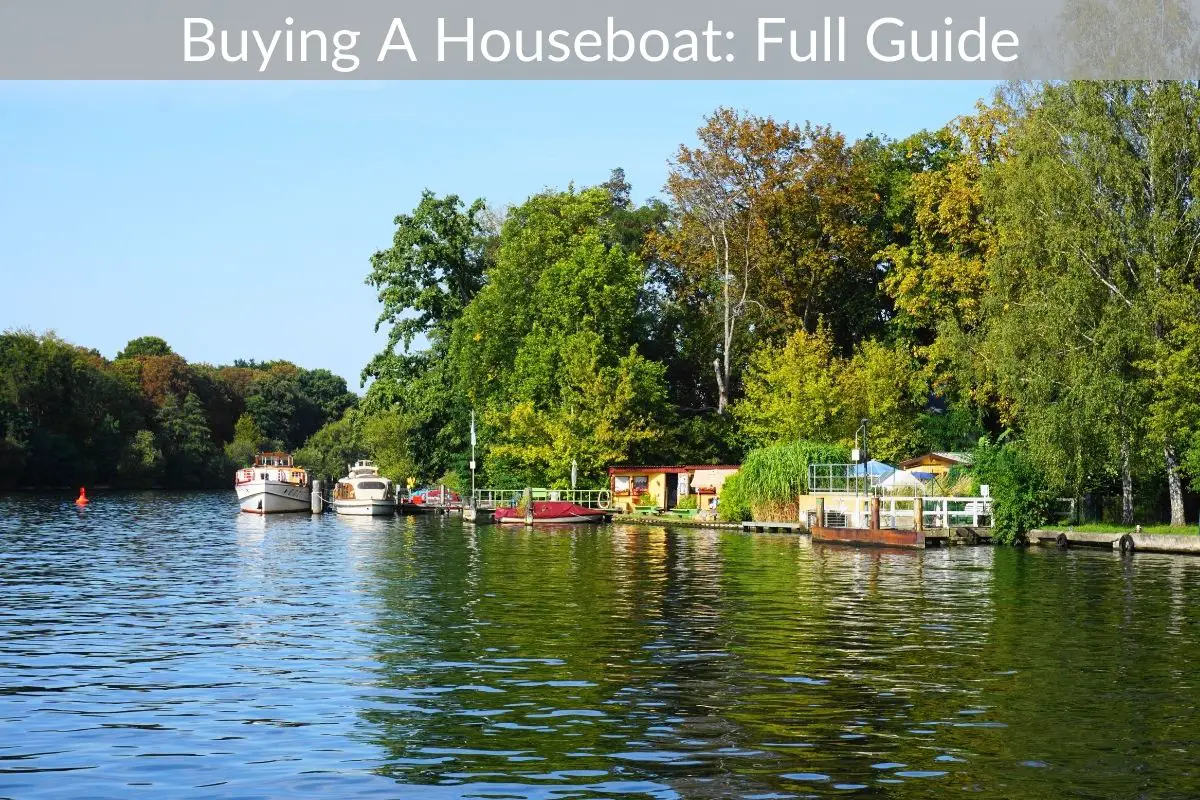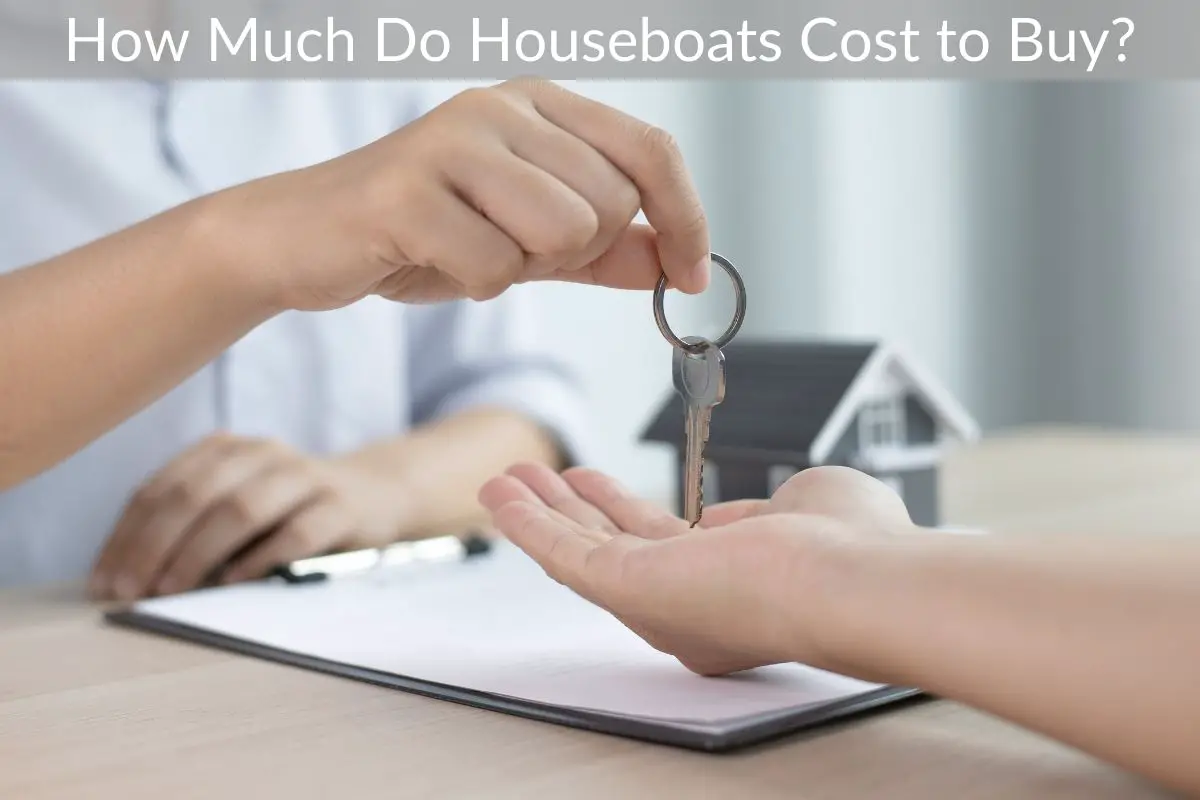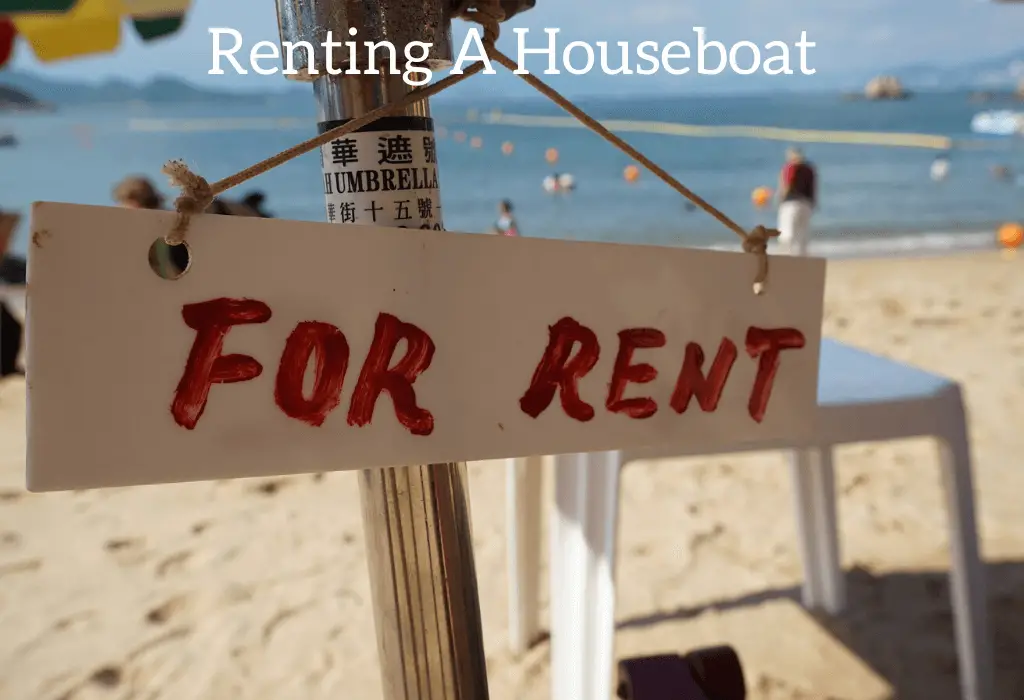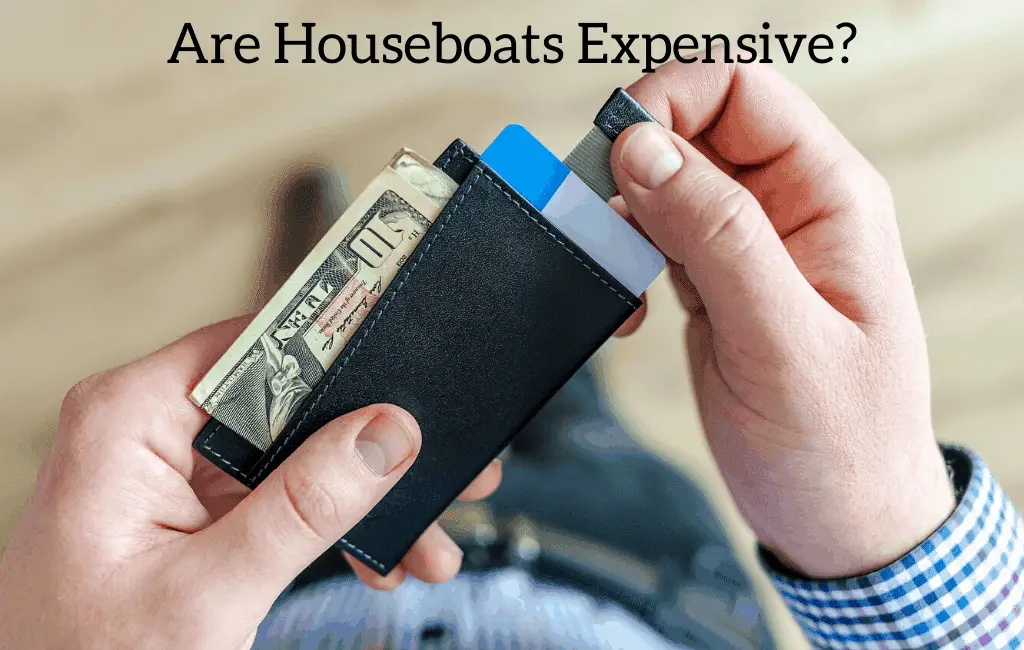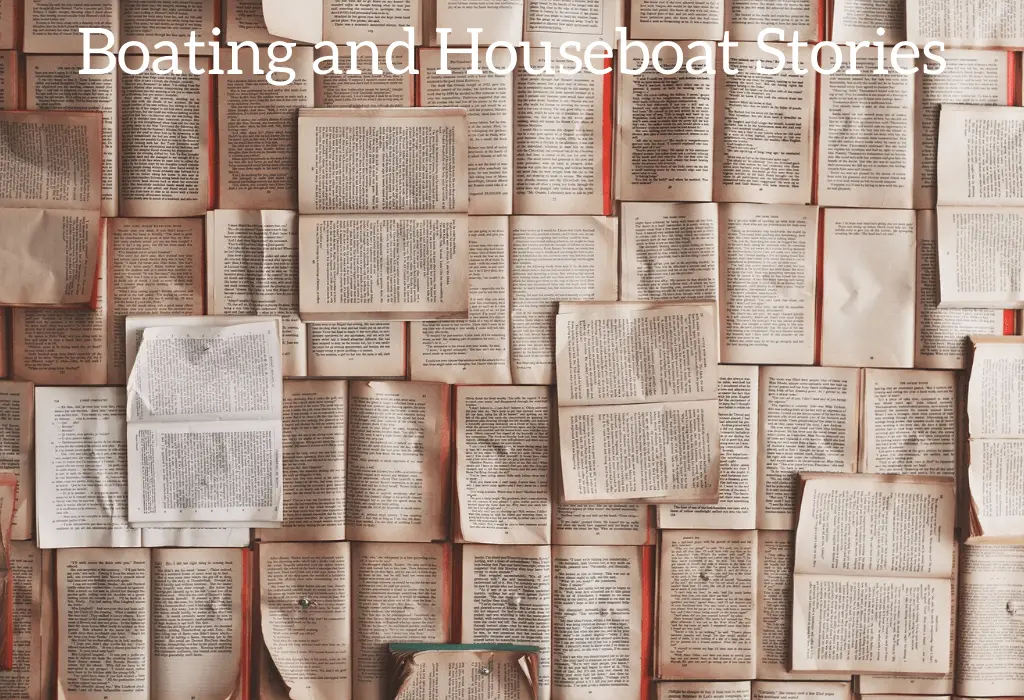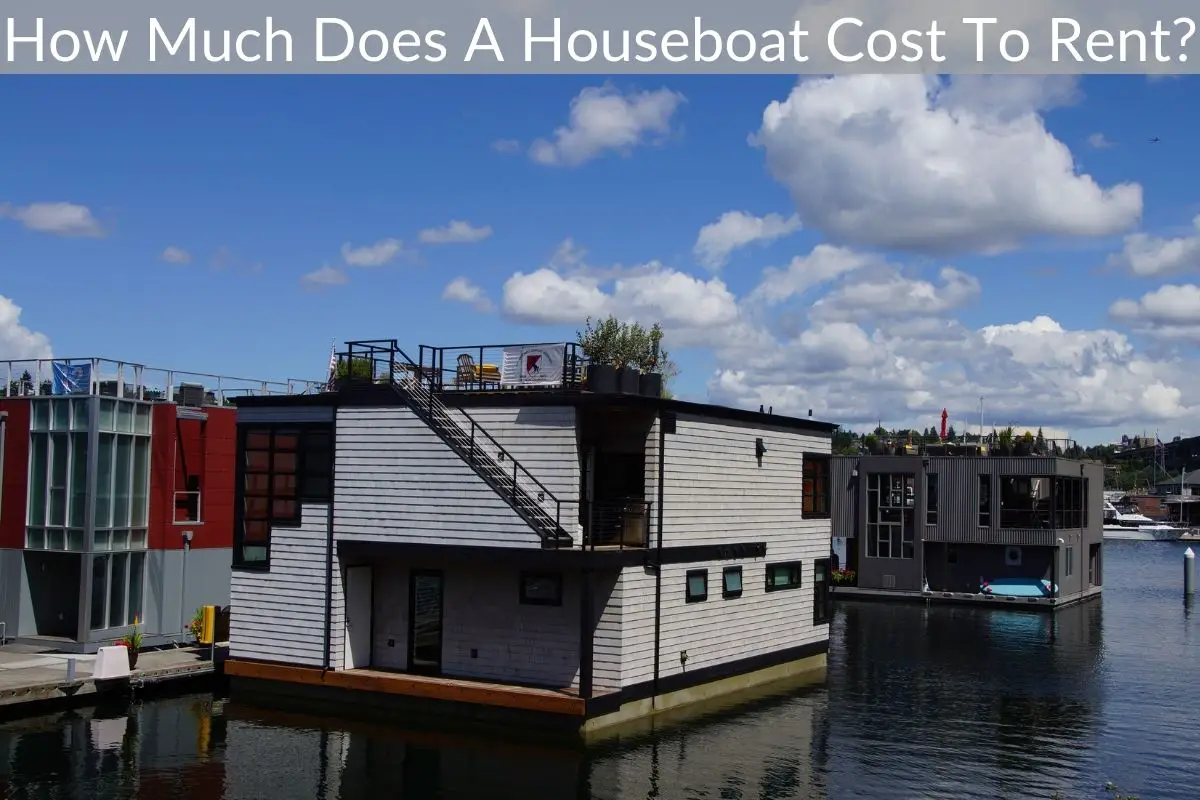In this article I will share some horror stories from real people who have lived on a houseboat. If you want to truly understand how horrible it can be then this is the article for you! If you would prefer to read the good things about living on a houseboat you can read those stories here.
*This post may contain affiliate links. As an Amazon Associate we earn from qualifying purchases.
1. The Stench Was Everywhere
“While not a houseboat in the traditional sense, my father lived on a boat while I was in school. A few things that really stood out:
The bathroom stench permeated everywhere, having a small septic tank on board also required us to go over to a special dock to suck the poop out on a fairly regular basis.
This may not be the case with every boat, but there was very limited standing head room. Like in the bedroom you could not stand up, you had to walk like a caveman.
There was also an incredible amount of maintenance. The hull of the boat blistered, muscles were on it slowing it down, and their were always teak things that need polishing.
The pros were that the entire house could go to beaches and we could catch fish from the side. We also had a huge swimming pool all the time.”
2. Living With Grandparents Was No Picnic
“Until moving in with my Dad, I have resided in my maternal Grandparents houseboat. Now, let’s start off with location. We were not on the ocean, oh no. We were on the bay, next to the reeking marsh. The mud of the bay was so thick in parts of the community that some of the houseboats didn’t float more than 4-5 inches in high tide.
Speaking of tides, when the tide rushes in the houseboat begins to swerve and sway. But that’s not the real issue. The real issue is when the tide is at a point that the house starts leaning downwards, which makes everything you cook or bake, lopsided.
Next let’s talk about the bathroom issues. The toilet and septic system couldn’t handle anything other than urine and sh!$ So we had to throw out our toilet paper, our sh!$ filled tp, in a trash can.
Also, the toilet didn’t flush out like other toilets. You would have to step on a pedal and it would open a high powered suction hole in the toilet bowl, that would suck the sh!$ out. It was incredibly noisy, and much too easy to clog.
Let’s move on to the shower, my shower,(which I shared with four other people) was 2′ by 2′ stall shower. The actual shower head was detachable, but the water pressure was so weak, it wasn’t even worthwhile.
Moving on to the water itself, we weren’t allowed to drink it. At all. The community I lived in supplied you with bottled water, so you wouldn’t have to drink it. Apparently it had overly high contents of whatever, even though it was from a well.
You mentioned hurricanes? Right before the hurricane, you have to retie the houseboat to the docks. And during the actual hurricane, you evacuate. It’s truly not safe to stay on the water during a storm like that. Mild waves, from nearby speedboaters are enough to knock you off your feet. I can only imagine how an actual storm would be.
Other environmental factors would be the stench of the bay, though I think I already mentioned that. And then there are them f@&$ing birds. Stupid f@&$ing sea gulls squawking and breaking mussel shells on your roof. It’s annoying as f@&$ Other animals include the occasional wharf rat, but I think they’re kind of cute. I believe that covers it.”
3. Spiders Everywhere!
“I lived on a 24’ sailboat alone for about a year.
-Spiders everywhere, and every spider was within arms reach of my bed.
-Something always needs to be fixed or at least covered with a tarp.
-Tiny kitchen. Camp stove and a cooler in my case.
-Hurricanes are even more stressful.
-One time there was a diesel spill in the river and I couldn’t go outside without smelling strong fumes for days.
-I saw a manatee at the marina right before I bought the boat and then never saw another one.”
4. No Privacy Or Peace And Quiet
“As someone who has spent a good portion of my childhood living on a 32 foot long “yacht,” with my mom, step-dad, and sister, I had a couple of issues.
Space is very tight, so you don’t have much in the way of personal items, or space to store what little you have. Also, no privacy, because anything you say or do can be heard by everyone else on board.
Power was sometimes an issue (you were often connecting to power on the dock, so it was finicky sometimes) as well as water, constantly refilling the water tanks. And, in our case, we forgot the water was pumping into our tank, so we had our water tank completely destroyed twice.
Also, if your neighbors suck, or you’re in an area with a lot of traffic, there won’t be much peace and quiet. And, since the water tanks are small, and the showers on a small boat suck, and the toilet was very easy to clog, you often had to use the facilities the marina provided (most marinas have a separate facility for people living on their boat, so you don’t have to use the public one). And of course, no room for laundry machines, so you have to use the ones the marina provides, or go to a laundromat.”
5. Wait… What Happened To The Cat???
“My grandparents were liveaboards on a 46ft Sea Ranger made in 1985. They had a berth in the local marina and took the boat out for a spin a few times a year. More often when they were in the Coast Guard Auxiliary.
I would LOVE to live on a boat the way my grandparents did. I loved every second with them.
CONS -The toilets would get clogged easier than regular toilets and were also harder to unclog.
-Their berth was a quarter mile walk down the doc. Me being a lazy teen at the time didn’t care for that too much. It was a pain when grocery shopping lol. But they had a wagon that they used to transport the groceries.
-Small kitchen. Storage was there but not easy to access but it was perfect for a pair of retirees.
-My grandma hated spiders and did her daily rounds of walking the outside of the boat to sweep away any webs.
-Dry dock/repairs on such a large vessel’s hull is friggin expensive. Along with maintenance on the twin diesels. But he did his own engine maintenance because he was a machinist in the Navy for 20yrs.
-Grandpa’s cat didn’t want to stay on the boat. He had to keep the canvases snapped and zipped tight. Doors/hatches closed. One of the few occasions the cat got out he drowned (fat house cat). Another boater found the cat’s remains floating in another birth.”
6. Try Living In Your Living Room First!
“We have been living aboard our boat, Cygnus III, for the last six years whilst slowly sailing around the world.
We often get asked what it is like to live aboard a boat so to help I came up with some practical tests you can do in your own home to find out exactly what it is like. Try these and then you will know for yourself. (Extract taken from the Cygnus 3 blog.
- Accommodation ……Move everything out of your living room. I know it is bigger than a boat but we have to break you in slowly. You can bring the fridge back provided you lay it down face up and put everything you will need first right at the bottom under everything else.
- Sleeping ……..You are allowed a small mattress provided it is no thicker or more comfortable than a slice of burnt toast. Spray it liberally with water to simulate condensation. Fire elastic bands repeatedly at any exposed skin to simulate a mosquito attack. Do not go back to sleep until you find the offending elastic band. Men should put their prized golf clubs on view in the front garden. This will simulate your anchor. It will guarantee that you are awake all night keeping watch. Set the alarm for 3am to simulate another boat coming in and anchoring on top of you. To make it more realistic go outside into the street wearing only a head torch, wave your arms around and point. It won’t make any difference but it looks good. This can also be done naked to prevent too much conversation.
- Water ……Water is your most precious commodity on a boat. If it comes to a choice between the wife or water I am afraid she will have to go, especially if like most women she likes to wash. If she is prepared to clean herself in seawater or the condensation from the windows this may be acceptable. If for some strange reason she needs to wash her underwear rather than wear them for a month then wait for rain.
- Cooking ……All meals are to be cooked on a camping gas stove but turn it off halfway through the meal to simulate running out of gas. Break out a tin of cold baked beans. You may eat the neighbor’s prized “Coy Carp” provided you can catch it.
- Communications …..You are allowed a computer provided you use it on battery only and can pick up a dodgy internet connection from the pub a mile down the road. Curse anyone who sends you a link to a “Youtube video” or an image that is bigger than a postage stamp. If you have mobile phones turn them off. If for some reason you do forget it will be the bank trying to give you a loan you cannot have. It will also cost you the equivalent of four beers in costs. Expect them to ring tomorrow
- Provisions ……Provisions are limited to what you can carry or drag back from a petrol station 2 miles away. This includes a cylinder of gas. All purchases have to be made by sign language to simulate your total inability to speak the local language. Let 20 people go in front of you to mimic those locals who will push in front of you or have just popped in for a chat. Check all produce for anything that can crawl, jump or eat you such as cockroaches and rats.
- Toilets ……Every time you use the toilet throw at least two toilet rolls down afterwards and push them in with a plunger. You might as well get used to dismantling a toilet now as you will be doing it in the future… a lot.
- Maintenance ……Take the car engine out and put it in the smallest cupboard it the house. It has to only just fit and the oil filter and water pump has to be impossible to get at. Change both at regular intervals and learn to curse loudly. Have a first aid kit handy.
- Socialising ……The liveaboard has got to learn how to socialise. Go to a complete stranger’s house and invite them back to your house for drinks. You will either become instant lifelong friends or they will bore you to death and drink your year’s supply of alcohol. In either case once they have gone you will never see them again.
- Power ……Use one light at once and only when absolutely necessary. Pretend your room thermostat is your battery monitor and casually glance at it every 10 minutes. Occasionally get the neighbour to run his petrol mower outside your window for a couple of hours to simulate a generator. At these times you can use two lights but still continually check the thermostat.
- Amusement ……Take deck chairs and a bottle of wine down to the local car park. Watch all the cars parking and comment how differently you would have done it. Laugh or snicker when they cannot park right the first time. If there is only one vehicle in the car park, watch out for the French. You can tell them as they will come in at 40mph not knowing where the handbrake is and get out before the vehicle has stopped. They will also park within 2mm of the other car.”
7. Easier To Sleep In A Pressure Cooker!
“I had made great plans to live on my friends sailboat in Tampa Bay. It was a 1969 teak 29 foot boat. Completely restored. I was excited.
My excitement lasted three days! It was cramped, the shower was a joke, the toilet was as bad, and there was no air conditioning so I had three days in Tampa of 93° evenings and I thought I was going to sweat to death and evaporate. If I was sailing I’m sure it would’ve been fine, and I have enjoyed the boat many times. Those three nights would have been easier if I slept in a pressure cooker. Yes, I know, I didn’t tough it out! ;-/”
8. If Many Things Fail At Once You Will Die!
“More to your question though there are a few key points you should realize.
– There is significantly less space.
Even a 50ft boat only has about 300-400 sq/ft of liveable space.
– Everything is smaller.
Fridge, Stove, Counter, Table, Bed but most importantly Storage Areas. You will either learn to live with less stuff or learn to live with clutter.
There is way more maintenance than for a normal home.
– Things don’t like to sit unused and they wear out if you use them. The added bonus is that most things are in really awkward or tight spaces.
– Everything is custom.
All the items above will probably have been custom fitted to your boat. This makes them difficult and expensive to repair or replace.
– Oh yeah, everything is expensive.
It’s easy to understand why once you think about it. You are building custom items out of often specialty materials and putting them into one of the more corrosive environments on the planet. Also if many of these fail at the wrong time you will die.”
9. Uncomfortable Hot Summers And Cold Winters
“I’m never motion sick, travel sick, or sea sick. But! I was sailing along England’s south coast and, stopping at a port one evening, ate and drank to total fulfilment, then the next morning, cooked a full-English breakfast for everyone. The galley was right next to the engine room and the sea had a heavy swell. I just made it to the cockpit and had to stare at the horizon for a quarter of an hour, the wind in my face.
That’s just one problem with a smallish yacht, you live close to everything – the engine, the cooking, the head and the eating. One wrong smell and you’re in trouble.
Then there’s seaworthiness. Yes, it can be built as mine was, like the proverbial, and submarine, then surf and crash into the trough, with no problem. At least, no problem for the yacht. But you have to live in it too. The shock of impact from such high drops could break ankles – and scare the heck out of you.
Sailing around the Greek islands, it became so scary outside I closed the curtains and cooked spag-bol for everyone, so they wouldn’t see what was threatening.
The small interior collects damp and thus mildew. Insulation is probably not very good, so expect uncomfortable, hot summers and cold winters. I’d consider living abroad only somewhere with a pleasant, year-round climate.
A smallish yacht is relatively inexpensive, which is a great plus. Built well, it can be a fine vessel to enjoy sailing the seas. It has its limitations, though and these are best not forgotten, or disregarded.”
10. 99% Of People Won’t Understand You
“Let’s start with the bad news first, yes, the bad news, if you’re not ready for bad news, you should not be prescribing yourself to this lifestyle.
Cons:
- No one’s going to understand why you would want this lifestyle. To 99% of the people you meet, they will not get it.
- It is not easy. If you think you’re just going to flick responsibilities away and go off and live an easy life, you’re mistaken. I would say your liveaboard boat is a lot more than your RV, it’s a floating house that follows you wherever you go. You will spend about 99% of the time on a dynamic surface that stays stable about 5% of the whole time per year and at times there will be no road away from it. You have got to pick the right boat and take care of it.
- If you’re not handy, accept defeat and give up now. Even a 30-something foot Pearson is going to take an investment of your time and dedication, no you don’t need a degree in engineering, but you need to have the hunger to learn. Either get handy or walk away.
- Your life will depend on weather. When and where you go will depend on weather. Weather will dictate your location during hurricane season. You will soon learn to have at least 3 different weather data sources.
- It can be costly, the financial bite is always the worst thing in the beginning, but nothing beats a boat that fits you and your daily life, do not underestimate the value of 10 more feet of LOA.
- You cannot have any lazy people on board. That perpetual couch potato of a friend you have, is running a 20 to 40% chance of ending your life through their laziness if they continue the way they are on your boat. Those involved will either have to show you that they are ready to live active lifestyles or they should not be involved. Prepare to lose a few friends, being a cruiser/liveaboard tells you who your REAL friends are and how they really fit into your life.”
11. Weather Is Literally Life And Death
“There are quite a few cons when you are living on a boat full time.
CONS
This lifestyle is hard work. Yes, it’s amazing (and worth it) but it most certainly will come with its fair share of anxiety, stress, exhaustion and frustration.
– Weather.
Weather is no longer a simple inconvenience… it’s literally life and death. Not only do you need to be aware of the possible weather and tides coming your way each day/night as you choose an anchorage or decide if/when to sail, you’ll also have to have a plan for hurricane season in the caribbean, which lasts at least 5 months.
– Maintenance.
Keeping a boat in good working order is nothing like doing jobs around your house. This is a constant chore as the saltwater environments kills/destroys everything at a far faster pace than you might imagine. In almost all cases, there is nobody to call (and even if you could, you probably couldn’t afford them) and you’ll need to learn everything from plumbing and electrical to diesel mechanics and boat rigging on your own.
– Community.
Yes, you’ll meet great people along the way, but this lifestyle is very nomadic and you’ll end up moving often (and rarely does that happen to correspond with the plans of those around you). Not only are you literally floating on an island, you’ll find that you are very disconnected from those you left back home.
– Expense/Convenience.
This can actually be a very affordable way to live… but as you might imagine this life isn’t like being at home. You can’t simply load into the car to go get groceries and you can’t simply order a part on amazon and have it delivered overnight. Access to the thing you need is one of the more difficult parts of this lifestyle, and that often comes with a price. If the things that you need also happen to be boat parts or anything related to a boat… than you can safely expect those prices to be absurdly high.
– Learning curve.
If you’re anything like us (no experience before deciding to jump into this lifestyle), there is a massive learning curve in this lifestyle and the actual sailing is probably the least/smallest part of that curve. If you aren’t comfortable leaping into the unknown and figuring many if not all things out as you go this can be a deal breaker.
We are thrilled with our decision to sail away and wouldn’t change a thing.
Our daily photographs suddenly look like a collection of postcards… but I’d be lying if I didn’t also talk about it being a lot of work, some tears and lots of surprises/tense moments along the way.”
12. Flushed My Dreams
“Not me, but a coworker in Florida lived on a boat full time. He had it moored at a marina, with full power and water hookups and then it sank.
Not really sank, just almost sank. The bottom at the marina was rather shallow, so it was only about 3–4 feet. It was an older 45 ft. cabin cruiser, with 2 small staterooms with galley. Before it sank, all of us really admired him for being able to give up land and live a life on the water.
What we all realized was the expense of an emergency with such a set up. He had no place to go and was required by the marina, the city, and the Coast Guard to remove the boat within 3–5 days. He fixed it so he could store the boat on dry land on an empty lot at work. He was also able to use the power and live on board for 6 months.
He had to rent a crane, a flatbed semi truck and at least a dozen workers to get the boat moved since it was too big to trailer it. I had always dreamed of owning a large sailboat and possibly live on it someday, but that whole incident just flushed my dream down the toilet. A boat is a hole in the water into which you throw buckets of money into.”
13. Is It For Everyone? Definitely Not!
“Living on a boat isn’t like living in a house, even if you never leave the harbour. The boat is constantly in motion, so things break more than they do in a house. Pipes (or more accurately, hoses) leak, tanks split, wiring corrodes, diesel lines (to power your engine and generator) clog, etc. So you need skills to do repairs on your own, or the funds to pay someone to do them on your behalf. (In my experience, boat repairs cost at least double what I’d pay for the same service on land.)
Boats are subject to a lot of “rules” – maritime laws, national / federal laws, local / municipal laws and harbour / marina policies – which you need to know and understand. The rules influence where you can keep the boat, how long you can remain in place, where and when you can do repairs, the requirements for safety inspections, the qualifications of the person(s) responsible for the boat, etc. While most of the rules are obviously safety-related, some seem arbitrary or wrong. Ignore them at your peril!
Insurance costs and coverage are different for boats than they are for regular homes. You may need to do some shopping around to find a policy that covers your unique circumstances.
Being able to read and predict the weather is a must for boat living. Expect the odd sleepless night keeping watch during storms. A loose line or shifting anchor needs to be tended to immediately to avoid damage to your own boat, or those around you. And you must monitor the boats around you. Don’t assume that other owners (or their crew) know what they’re doing.
You’ll need to make arrangements for someone to care for your boat if you go away for an extended period. Unlike a house-sitter who simply collects the newspaper and waters the plants during your absence, a competent boat-sitter needs to understand the boat’s systems and be able to handle the boat in an emergency.
The boat and all of the systems require routine maintenance to remain seaworthy and safe. A small leak can turn into a big problem in no time at all. (Even boats in the harbour can sink! RIP M/S Edith…) You’ll need to budget appropriately, and also make arrangements for somewhere to live (and store your belongings) when your boat is in dry dock.
I’ve been living on a boat for two and a half years now and absolutely love it. Is it for everyone? Definitely not. But I wouldn’t trade the experience for anything!”
14. When It’s Stormy It’s Very Stormy
“I’ll answer from the point of view of a sailing yacht which is actually sailing places, and not just moored in a marina all the time.
- It’s not terribly spacious. You’d better get along with the rest of the crew, as it’s going to be hard to stay out of each others’ way.
- It’s wavy. So if you’re out of the regular coastal waters, then the swell is going to move everything fore to aft, port to starboard… You get into the habit of never letting go of a glass or a plate, because if you do, you can clean it up off the floor.
- Due to the nature of a sailing yacht, when it’s under sail, unless it is sailing with the wind directly from aft, the deck is going to slanted – all the time. So cooking is fun. The stove is on gimbals but it’s an unexpected challenge not to fall not the spaghetti as it cooks – unless you are Spiderman. Also, doing things like operating the radio, noting a course change in the logbook often involves wedging yourself into place with one foot on the deck and the other on the wall. And the desk you’re trying to work on is at 45°.
- And when it’s stormy, it is very very stormy. Especially out in the middle of the ocean. Typically half the crew goes catatonic and the rest run 12-hour shifts on deck, clipped securely to the wheel or to other anchor points, wearing harnesses to avoid being washed overboard. Because it gets fun. Like all hatches battened down, and then waves the height of a four-floor building (thankfully much further apart than one the waves get closer to shore), so you’re waaaaaay up there, and then your port will (in slow motion) free-fall until it hits the bottom of the trench between the waves, and then for a moment, it’ll keep going down, due to its inertia, so chest-deep water washes over the deck (and you), and then the prow rises again, climbs up the wave until it reaches the top. Then it keeps going upward for a bit, and you feel that you are flying, until gravity clears its throat and the prow ponderously heads for the ocean floor… Exhausting, exhilarating, terrifying… fun.
- Oh, and the food is not quite restaurant-quality if you are a student who can’t cook (which was me back then) and you only have a cookery book in Spanish. ‘Nuff said.”
15. Multiple Near Death Experiences
“Leona and I lived on our 35 foot, inboard diesel, fiberglass sloop for ten years. We cruised up and down the Baja from San Diego many times. Motored to various places and occasionally found enough wind to have an exciting sail. While I understand the heat and cold problem in various ports, we had few time that it was a problem in Southern California. Financially, the boat was cheap and also expensive. For example, a mooring ball was $30 per month, but the GPS cost about $2000. (Now, a new GPS can be under $100.) We used LORAN before GPS came out. This was in 1987 until 1997.
We had a few dangerous times. Came close to being run over by a whale. While sailing wonderfully, a storm and very high waves occurred about 50 miles from shore off Mexico. Our sea anchor was a life saver. Another, near death experience was nearly running the boat on shore at night after 20 hours of motoring at 5 knots to Ensenada, Mexico. No sleep, using the LORAN, unfamiliar harbor. On another occasion, on our way to Catalina, we had a fire in the engine compartment. A wire shorted out and caught one of our big batteries on fire. I extinguished it and rewired our power needs to the undamaged battery. Our anchor became entangled with a telephone cable in the Catalina bay and it took several laborious hours to get it loose. Obviously we survived these and many other challenges.
Yes, conditions were cramped, but we adapted. It is amazing the storage and cubby holes a boat has. We also enjoyed a wonderful experience and our Grandchildren now tell their kids stories of sailing with Grandpa and Grandma. My wife and I talk of the New Year’s Eve we anchored off the Coronado Islands, drank Champagne to welcome in the New Year and awakened to blue skies while watching the birds nesting in the cliffs. The shore parties with other boaters in various ports were great. Boaters are very interesting people.
This life adventure was one we are thankful we didn’t miss and love to tell our Great Grandsons.”
Interested in more stories? Click here to read 15 more stories about living on a boat
Source
1 2 3 4 5 6 7 8 9 10 11 12 13 14 15
Some of these stories have been edited for clarity and for grammatical errors.



